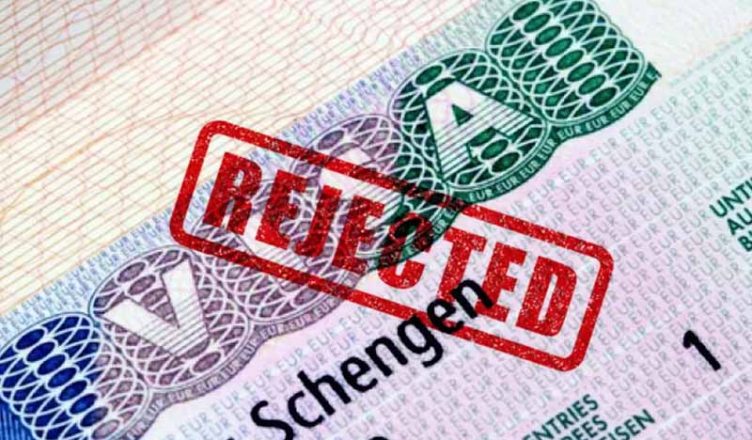Common Reasons for Schengen Visa Rejection
- Updated on 23 Nov 2023

Service: Travel Visa
Country: United States
Experiencing the disappointment of a Schengen visa rejection after investing considerable time in your application can be truly disheartening. Hence, it is crucial to understand the grounds for refusal before embarking on a fresh application.
A visa application may be deemed unsuccessful if the consular officer does not receive all the requisite information from the applicant. Without this vital information, the consular officer cannot make an informed decision regarding the applicant’s eligibility for the visa. Conversely, there are instances where the applicant provides information that does not align with the established procedures, or the applicant may be engaged in unlawful or deceitful activities. In each of these scenarios, the consular officer is compelled to reject the visa application.
Here are the most common reasons for Schengen Visa application failures:
1. History of Criminal Activity: An applicant’s past or ongoing criminal activities can significantly impact the consular officer’s decision. Visa denial may occur if the applicant is considered a threat to public policy, internal security, or the public wealth of the Schengen Area, which could include involvement in terrorism, drug abuse, child abuse, addiction, or other serious crimes.
2. Submission of False Travel Documents: Presenting fraudulent travel documents, attempting to misrepresent identity, or using fake identities will invariably result in visa denial and associated adverse consequences.
3. Inadequate Explanation of Travel Purpose: Failure to provide a sufficient rationale for the purpose and conditions of planned travel and stay can lead to visa denial. This includes situations where an applicant’s employment and professional qualifications do not align with their financial situation, a lack of supporting documents for travel intentions in the Schengen Area, and inconsistencies in the stated purpose of travel.
4. Damaged Passport: Visa refusal may occur if an applicant presents a passport that is not in good condition. Examples include passport pages detaching or missing and a damaged passport cover.
5. Passport Invalidity: Another reason for visa application denial could be presenting a passport that does not meet the Embassy or Consulate’s criteria. This includes having a passport with less than three months of validity remaining after returning from the Schengen Area, lacking two blank visa pages, presenting a Travel Document Booklet instead of a valid passport, or holding a passport older than ten years.
6. Failure to Provide a Travel Itinerary: Inadequate documentation of your travel plans within the Schengen Area can lead to visa application failure. This includes applying to the wrong Embassy of the Schengen Area, not demonstrating booked accommodations for each night of stay, failing to provide booked flight tickets (especially for group travelers), and lacking travel tickets for each destination within the Schengen Area.
7. Invalid Letter of Reference: Presenting a formal letter of reference that lacks authentication by the author can result in a failed Schengen Visa application. This includes not having an original letterhead with the company’s or author’s contact details, presenting a letter older than three months, and missing the author’s stamp and signature.
8. Insufficient Means of Subsistence: A lack of or insufficient proof of financial means to support oneself during the stay in the Schengen Area and for the return to the home country can lead to visa refusal. Examples include failing to provide financial statements less than one-month-old, lacking current account statements, and not having sufficient funds in the presented financial statements.
9. Unacceptable Birth or Marriage Certificates: Failing to provide birth or marriage certificates that are accepted by the embassy or consulate can result in visa denial. This includes not offering a certificate endorsed by official authorities, failing to provide translations for documents not in English, and not presenting documents showing both parents’ names (if applicable).
10. Invalid Travel Insurance: Inability to demonstrate appropriate travel insurance coverage for the entire duration of the Schengen Area stay can lead to visa application failure. This includes not providing insurance in the required amount, insurance that does not cover return to the home country, insurance that is not valid across the entire Schengen Area, and insurance that does not cover the entire trip.
11. Failure to Prove Accommodation: Inability to demonstrate appropriate lodging arrangements during travel can result in visa refusal. This includes not providing evidence of hotel reservations, lacking a host invitation letter (proof of sponsorship), and failing to show evidence of pre-paid tours.
12. Unfavorable Schengen Visa History: Previous non-compliance with Schengen Visa restrictions, such as overstaying in the Schengen Area or deviating from the stated travel itinerary, can negatively impact a visa application. Holding an active Schengen Visa on another passport can also lead to visa refusal.
Conclusion
With our meticulous approach, A1 Visas, a prominent visa services provider, significantly reduces the risk of visa rejection. Our expertise ensures that your application aligns with the stringent requirements, increasing the chances of approval. Our guidance encompasses thorough documentation, accurate submissions, and adherence to visa regulations, offering a more secure pathway to a successful visa application. Learn more
Expedited Visas
CALL US NOW

